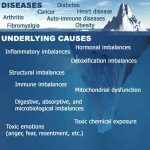Glandular Fever Treatment Cambridge
Glandular fever is also known as Infectious Mononucleosis or ‘Mono’ for short. Alternatively, it is also known by the name Epstein-Barr, which is a virus in the herpes family. Glandular fever is an infectious illness that causes swelling of the lymph nodes. Lymph nodes, containing lymphatic fluid, are part of the immune system and, when swollen, they feel like round bumps on your neck, armpits and groin.
By the time you’re an adult, you are likely to have been infected with the Epstein Barr virus and had glandular fever, but many people have no or few symptoms of the disease, especially if they caught the virus as a young child as the symptoms in children are typically less severe. This means you may not know that you have suffered from glandular fever.
The most common age to get glandular fever with symptoms is between the ages of 10 and 35. Only those who have not already had the virus as a child can get glandular fever as an adult. If you’ve already had it, your body will have produced antibodies that fight the virus if you come into contact with it again. As a consequence, it is very rare to get glandular fever twice.
The incubation period (the time between being exposed to the virus and getting symptoms) is 33 to 49 days and the Health Protection Agency advises that young children do not need to miss school or nursery when they have the virus. This is because the infection is usually mild in young children and the incubation period is so long that it is hard to identify the source (who it was caught from).
Glandular fever is an infectious illness and can be passed on to family and friends; however, most adults exposed to glandular fever have previously already been infected with the Epstein-Barr virus (often as a child) and are therefore not at risk of developing glandular fever.
Glandular fever is usually passed on through intimate contact between an uninfected person and someone who has the Epstein-Barr virus (and may not be expressing any symptoms). Only a small number of people (5%) acquire the virus from someone who has developed the full symptoms of the infection. The virus is rarely passed on from environmental sources, such as coughing and sneezing.
The Epstein-Barr virus is normally spread in the saliva – most commonly through close contact, such as kissing. As such, you should avoid kissing and close bodily contact or sharing cups and towels while you are ill.
Therapies for Help with Glandular Fever
- Comprehensive Functional Blood Test
 can reveal significant markers for health or disease in a variety of systems in the body and this may lead to further investigation if anything significant arises from testing.... read more
can reveal significant markers for health or disease in a variety of systems in the body and this may lead to further investigation if anything significant arises from testing.... read more - Functional Health Care
 assesses your current health and wellbeing and the practitioner can advise you on the various options available. Your assessment will be thorough and in depth and look at your health, diet, lifestyle, posture, fitness, happiness and coping abilities.... read more
assesses your current health and wellbeing and the practitioner can advise you on the various options available. Your assessment will be thorough and in depth and look at your health, diet, lifestyle, posture, fitness, happiness and coping abilities.... read more - Hypnotherapy
 uses hypnosis as a tool for helping people to achieve greater levels of confidence, better health and increased emotional stability. It is especially recommended for anyone interested in increasing their self-awareness.... read more
uses hypnosis as a tool for helping people to achieve greater levels of confidence, better health and increased emotional stability. It is especially recommended for anyone interested in increasing their self-awareness.... read more - Kinesiology
 is quick, gentle and non-invasive form of therapy and will help you discover how your body is feeling about the life you are living. By bringing your attention to how your body is responding it makes it easier to know what is right for you.... read more
is quick, gentle and non-invasive form of therapy and will help you discover how your body is feeling about the life you are living. By bringing your attention to how your body is responding it makes it easier to know what is right for you.... read more - Reflexology
 is particularly beneficial for the treatment of stress related problems that have become physical such as irritable bowel syndrome, headaches, muscular and joint pain and any other condition that is not responding to conventional treatment.... read more
is particularly beneficial for the treatment of stress related problems that have become physical such as irritable bowel syndrome, headaches, muscular and joint pain and any other condition that is not responding to conventional treatment.... read more






